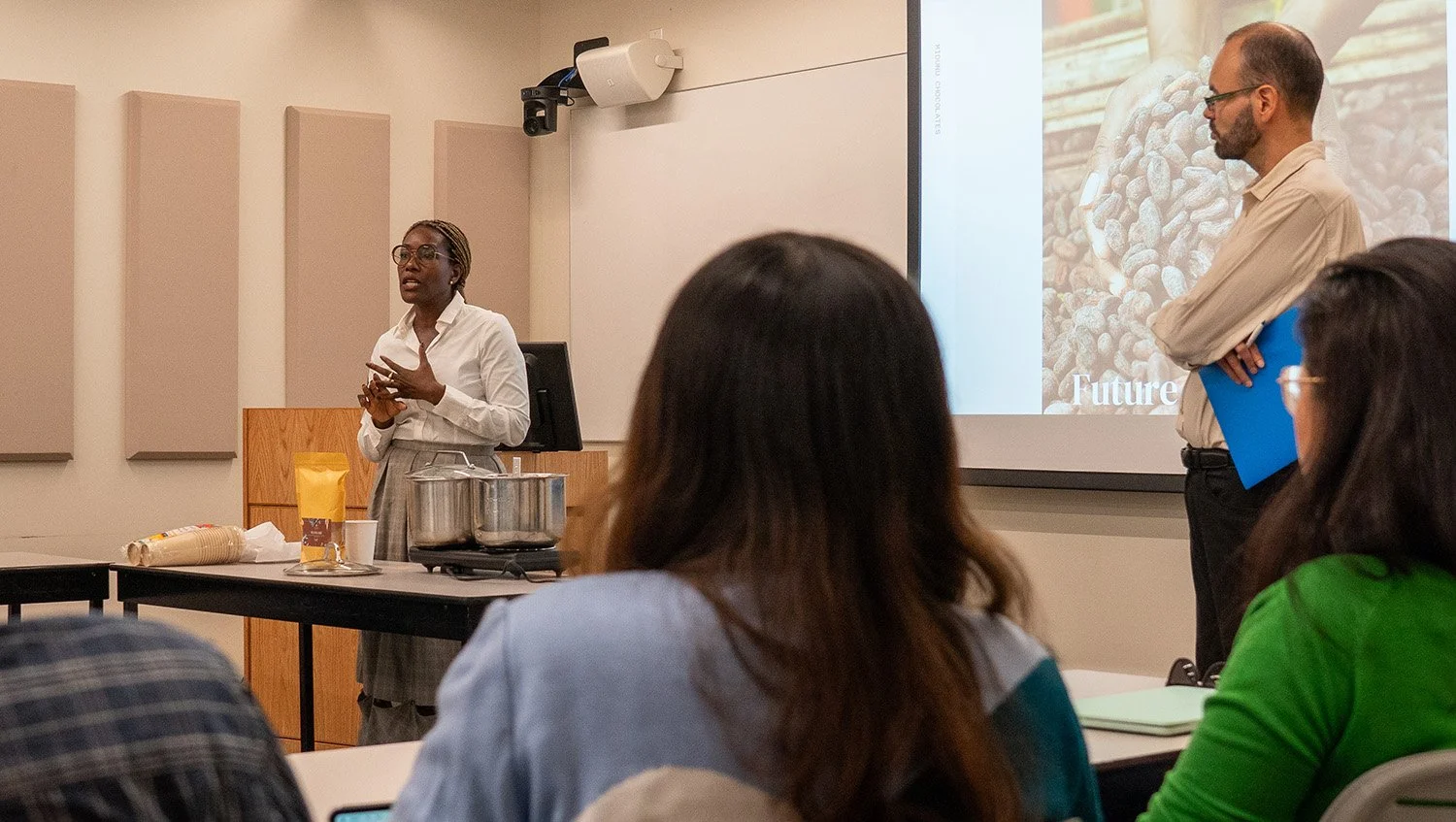The Lessons I Carried to Yale
This time last year, I stood in a kitchen in Accra—surrounded by fonio, cocoa, rice, and stories—preparing menus and memories.
A few months later, I found myself in New Haven, Connecticut, doing something I never imagined: teaching those same ingredients in the halls of Yale University.
It was my third visit to Yale. The first two times, I came to work with their dining team. But this time was different.
I had been invited as the inaugural Global Table Fellow, a new program launched in partnership between Yale Dining, the MacMillan Center, and the Schwarzman Center.
They asked me not just to cook—but to think, to teach, and to reflect alongside them.
I said yes with both hands.
And so, for one golden week in October, I found myself moving between lecture halls, dining rooms, and kitchen counters—carrying lessons not just about food, but about life.
I guest lectured for an environmental studies class on cash crops—the topic of the week was cocoa.
I brought stories from Ghana, challenges from the field, and a thermos of our Midunu hot chocolate.
I spoke about the EU’s deforestation regulations, realities for cocoa farmers, about what it means to be a maker in a cocoa-producing country.
The students asked hard, generous questions. And in answering them, I realized how much I had learned.
Later that week, I worked with the dining team to introduce new dishes to their vegetarian outlet—Waaakye, bobotie(reimagined as a plant-based casserole), vegan shito.
When the menu finally launched, after I’d left campus, I watched students’ reactions roll in on social media. The excitement. The curiosity.
The quiet joy of discovering flavor that felt like home, even if it was new.
Rice and beans, in another name, still speaks to the soul.
There was also a master class on ancient grains.
I brought fonio and asked students to make grain bowls with it, to taste, to remix it with what mattered to them.
One student told me it reminded him of a dish his grandmother used to make.
Another told me it was the first time she’d felt represented in a dining experience at school.
And then there was the public lecture: What I Learned from the African Kitchen.
I wasn’t sure who would come—but the room filled. Faculty, students, community members.
Some had been to Ghana. Some had only tasted it through chocolate.
What we shared, that night, was something deeper than flavor.
It was the kind of listening that feels like home.
Here’s the truth:
I didn’t realize how much I had to offer until I heard it reflected back in their questions.
Teaching helped me see myself more clearly.
Food helped us find one another.
And so, today, I want to say this:
If you’re building a program, a curriculum, a convening, a conversation about the future of food systems, I’d love to bring this work to your table.
The classroom may have been at Yale, but the curriculum began long before—
In the kitchens of aunties,
In the fields of smallholder farmers,
In the rhythm of firewood and millet and memory.
That’s where the real learning began.
And I’m just getting started.
📬 Want the full story?
Read the original Substack letter: selassieatadika.substack.com
📸 credit: Yale University
